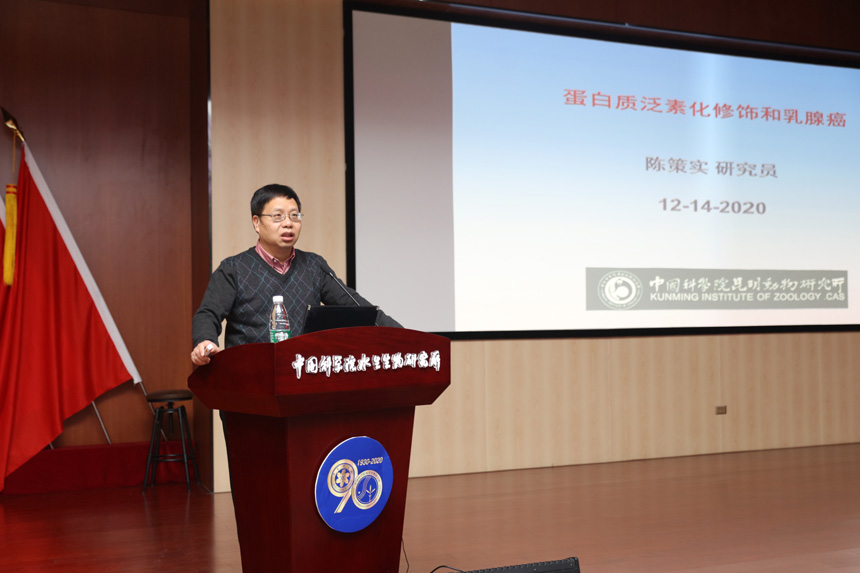
Newsroom
Prof. CHEN Ceshi Gives Lecture on Protein Ubiquitination and Breast Caner

Prof. CHEN Ceshi from Kunming Institute of Zoology, Chinese Academy of Sciences gives a lecture at IHB on Dec. 14, 2020. (Credit: IHB)
Prof. CHEN Ceshi from Kunming Institute of Zoology, Chinese Academy of Sciences was invited to give a lecture titled “Protein ubiquitination and Breast Cancer” at Institute of Hydrobiology, Chinese Academy of Sciences on December 14.
Breast cancer is a malignant tumor that occurs in the epithelial tissue of the breast. Since the breast is not an essential organ for maintaining human life, breast cancer in situ is not fatal. However, breast cancer cells are easy to fall off because they lose the characteristics of normal cells and the connections between cells are loose. The fallen-off cancer cells can be freely spread throughout the body by the blood or lymph fluid, and form metastases that endanger life. Most intracellular proteins are modified by ubiquitination. Ubiquitin-modifying enzymes are potential targets for breast cancer intervention.
In his lecture, Prof. Chen introduced the work of his research team. They first discovered several cancer-related ubiquitin ligases, among which a new HECT type ubiquitin ligase, HECTD3 is frequently amplified and overexpressed in cancer. HECTD3 can promote the survival, drug resistance, and metastasis of breast cancer cells. By inhibiting its expression, the efficacy of lapatinib can be increased.
The lecture is closely related to the prevention of tumor diseases and drug screening, and aroused strong interests among the participants.
Chen's current projects are to study E3 ubiquitin ligases and deubiquitinases in cancer development; the KLF5 transcription factor in breast cancer stem cells; the tree shrew models for human breast cancers; and anti-cancer drug development. His research interests are in the cancer genetics and biology of human cancers.